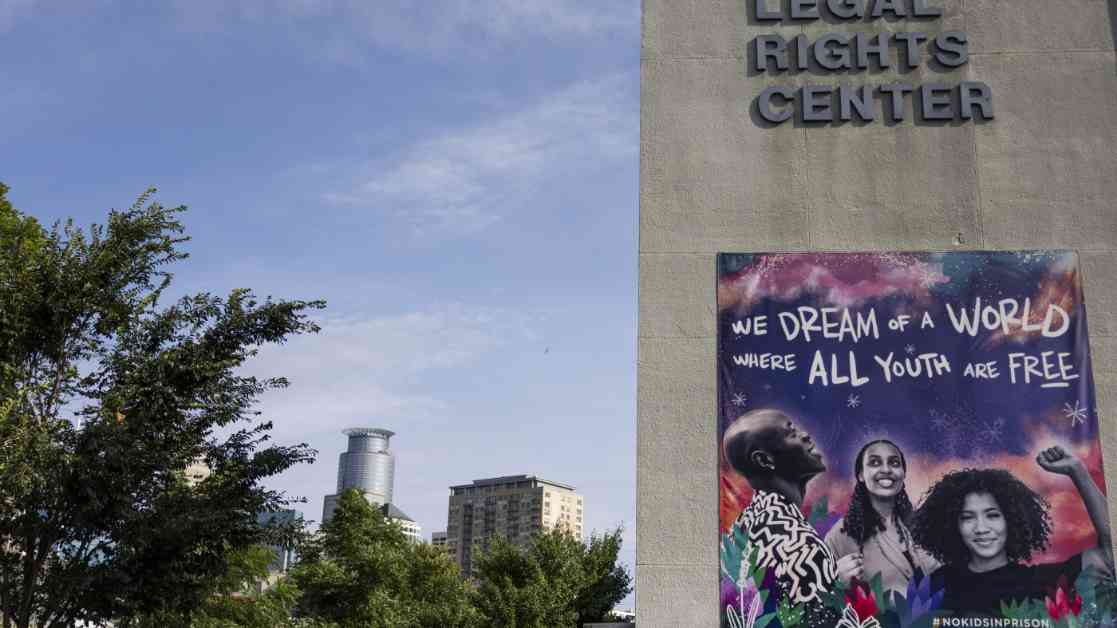Empowering Youth in Police Interrogations
The Legal Rights Center in Minneapolis is taking proactive steps to educate young people on how to assert their rights when in police custody. Through trainings and workshops, the center aims to empower youth to understand their legal rights and protect themselves during interrogations.
One 22-year-old individual, who chose to remain anonymous due to being on probation, shared his experience of being arrested at the age of 12. He recalled feeling intimidated and overwhelmed by the situation, as he did not fully comprehend his rights or the implications of speaking to the police without legal representation. This lack of understanding is a common issue among juveniles, with studies indicating that up to 90% of young individuals waive their Miranda rights without fully comprehending the consequences.
State Legislation to Protect Juveniles
Recognizing the vulnerability of children and teenagers during police interrogations, several states have taken steps to limit the interrogation of minors without legal representation. States like California, Maryland, New Jersey, and Washington have passed laws prohibiting police from questioning children until they have consulted with a lawyer. Additionally, Illinois is considering expanding its protections for juveniles in police custody, with other states like New York and Minnesota introducing similar bills.
The decision to implement these laws stems from a growing understanding of the cognitive development of young individuals. Research shows that the brain areas responsible for impulse control, self-regulation, and decision-making are not fully developed until around the mid-twenties. This developmental difference makes children and teenagers more susceptible to providing false confessions or incriminating themselves during police interrogations.
Challenges and Pushback
While these legislative changes aim to protect the rights of juveniles, there has been pushback from law enforcement agencies. Concerns have been raised about the practical implications of providing legal representation to all young individuals being questioned by police. Questions regarding the availability of lawyers, potential delays in urgent cases, and the impact on gathering crucial information have been raised as challenges to implementing these laws.
Despite these challenges, advocates for juvenile rights emphasize the importance of rebalancing the power dynamics between young individuals and law enforcement during interrogations. Chelsea Schmitz-Gillam, a juvenile defense attorney at the Legal Rights Center in Minneapolis, highlights the need for young people to have access to legal guidance and support when interacting with the police. Through proper legal representation, juveniles can better understand their rights and make informed decisions during questioning.
Shifting Responsibility and Empathy
Malaika Eban, the executive director of the Legal Rights Center, advocates for a shift in responsibility towards adults and the legal system to ensure the protection of young individuals’ rights during police interactions. By placing the onus on the system to safeguard the rights of juveniles, the burden is lifted from young individuals who may not fully understand the complexities of the legal process.
Dave Thompson, a consultant specializing in interrogation techniques, acknowledges the concerns raised by law enforcement regarding the implementation of these laws. However, he emphasizes the importance of protecting the rights of all individuals, including juveniles, to ensure a fair and just legal system. Thompson suggests that by adhering to proper procedures and respecting individuals’ rights, justice can be served effectively.
In conclusion, the efforts to limit police interrogation of children and teenagers represent a significant step towards protecting the rights and well-being of young individuals in the legal system. By providing access to legal representation, educating youth on their rights, and enacting legislation to prevent alone interrogations, states are working towards creating a more equitable and just system for all individuals, regardless of age.



























